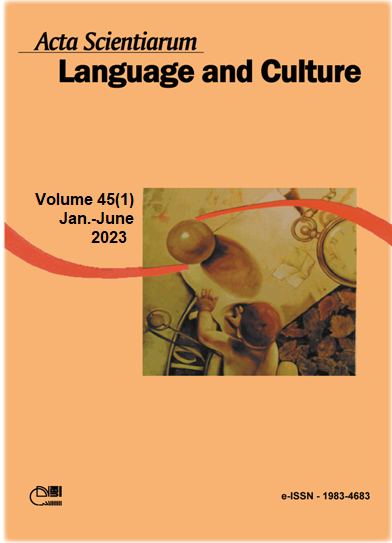As categorias de modo e voz, de Gérard Genette na construção do herói-autor Mil rosas roubadas, de Silviano Santiago
Resumo
A partir de pressupostos da Teoria da Narrativa apresenta-se este resultado de pesquisa. O tema concentra-se nos limites entre as categorias de ‘modo e voz’, desenvolvidas por Gérard Genette em Discurso da narrativa, (1979). Neste sentido, objetiva-se discutir alguns equívocos que os questionamentos sobre ‘quem fala’? e ‘quem vê’? podem desencadear em certos textos narrativos. Parte-se da hipótese de que tais confusões teóricas podem comprometer a interpretação crítica da obra literária. Os métodos empregados restringem-se ao recurso da pesquisa bibliográfica na área da Teoria Literária, sendo que, para tanto, utilizaremos como principal aporte a obra teórica Discurso da narrativa, de Gérard Genette (1979). No percurso de elucidação de nossas hipóteses, selecionaremos como corpus o romance Mil rosas roubadas, de Silviano Santiago (2014). Com semelhante estudo, espera-se chegar à compreensão dos possíveis efeitos de sentido que as categorias de ‘modo e voz’ podem trazer ao objeto artístico.
Downloads
DECLARAÇÃO DE ORIGINALIDADE E DIREITOS AUTORAIS
Declaro que o presente artigo é original, não tendo sido submetido à publicação em qualquer outro periódico nacional ou internacional, quer seja em parte ou em sua totalidade.
Os direitos autorais pertencem exclusivamente aos autores. Os direitos de licenciamento utilizados pelo periódico é a licença Creative Commons Attribution 4.0 (CC BY 4.0): são permitidos o acompartilhamento (cópia e distribuição do material em qualqer meio ou formato) e adaptação (remix, transformação e criação de material a partir do conteúdo assim licenciado para quaisquer fins, inclusive comerciais.
Recomenda-se a leitura desse link para maiores informações sobre o tema: fornecimento de créditos e referências de forma correta, entre outros detalhes cruciais para uso adequado do material licenciado.




















6.png)









